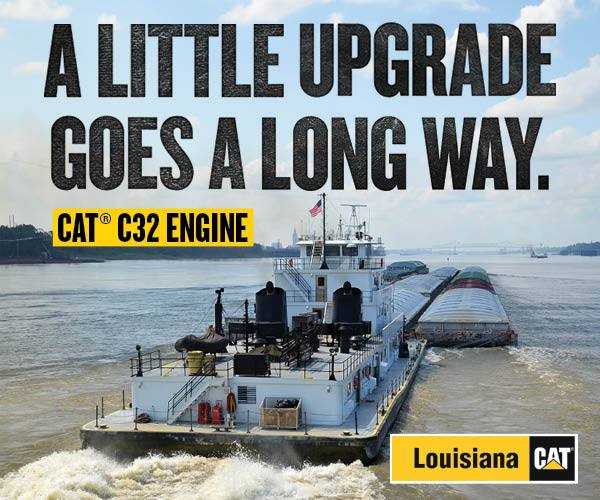Environmental Awards to Include Climate Change Mitigation Category
BY JUDITH POWERS
Craig Vogt announced that the Western Dredging Association (WEDA) Environmental Commission will present an award for mitigation or adaptation to climate change at the annual meeting in Vancouver in June. The addition of this category is in accordance with the agreement made by the World Organization of Dredging Associations (WODA) to begin to collect data on climate change mitigation in dredging projects around the world.
The other two categories for the environmental awards are dredging for navigation and environmental dredging.
Vogt who chairs the commission reported in April that he had received nominations for projects in all three categories.
The addition of the new category comes at a time when nations around the world are joining forces to combat climate change by reducing carbon emissions and mitigating the effects of carbon in the atmosphere by creating “carbon sinks” in which plant photosynthesis absorbs more carbon than it releases. This can occur in boreal forests forested wetlands old freshwater wetlands and at sea by kelp forests to name just a few.
WODA’s statement on mitigating and adapting to climate change finalized at the 2016 World Dredging Conference in Miami states that “An integrated holistic approach to carbon management in relation to dredging projects is needed; optimization of dredging processes innovations in the design of dredging vessels the use of alternative fuels as well as the use of sediment to support carbon sequestration offer opportunities that should be further developed.” It continues by saying that adaptation measures need to be based on a well-informed approach that makes use of surveying monitoring and adaptive management. It also states that flexible evidence-based and science-informed regulatory frameworks are essential for the implementation of solutions.
Vogt provided the impetus for the formation of the Environmental Commission in 1994. He had joined WEDA in 1991 at the request of Bill Murden then chairman of the WEDA board of directors and Larry Patella WEDA executive director after they heard him speak in his capacity of director of the Oceans and Coastal Protection Division of the Environmental Protection Agency (EPA) at a WEDA meeting. Murden recognized the need to get EPA more involved in WEDA and suggested Vogt’s appointment to the board of directors.
In 2008 Vogt retired from the EPA and started a private consultancy on ocean and coastal environmental issues such as environmental impact assessments; impacts of erosion on shoreline management; peer reviews of Corp of Engineers (COE) navigation projects disposal of mine tailings into ocean waters and regulatory guidance documents for hazardous waste dredging and disposal.
He has run the Environmental Commission virtually alone until this year when he announced a new structure that includes three new positions. These are vice chair to be filled by Steve Garbaciak; communications coordinator to be filled by Marsha Cohen; and reporting secretary to be filed by Alan Alcorn. Commission meetings held in conjunction with the annual WEDA general meeting are regularly attended by several dozen interested members.
The three are long-standing members of the Commission. Garbaciak an environmental scientist worked for the EPA before coming to WEDA; Cohen is formerly the editor of Terra et Aqua magazine and now a freelance writer in the dredging industry and Alcorn is an environmental scientist in dredging projects is vice president of WEDA and has been keeping records of the Environmental Commission meetings for several years.
Vogt announced that in 2017 the commission would focus on getting state and federal regulators to the chapter meetings noting that government travel restrictions might keep them from going to Canada for this year’s Summit.
Vogt has been working with colleagues from Environment Canada to set up an environmental panel at the Vancouver event.



